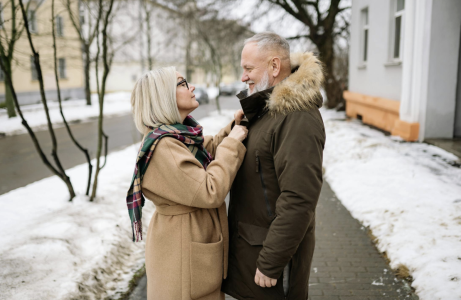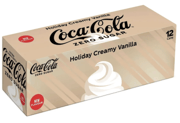Stop making these common winter mistakes—simple habits can keep you safe all season long
- Replies 0
As the days grow shorter and the chill sets in, winter brings that familiar mix of warmth and worry.
It’s a season for cozy evenings, comforting meals, and maybe a snowball fight or two—but also one filled with hidden risks that can sneak up on anyone.
Slippery sidewalks, heating hazards, and even a little overexertion can turn a cheerful moment into an emergency.
The best part? Most cold-weather injuries can be prevented with a few mindful choices and easy preparations.
Before you light that first fire or plug in a space heater, take a few simple steps to ensure your home is a haven, not a hazard:
The American Heart Association warns that the combination of cold air and strenuous activity can trigger heart attacks, especially in older adults or those with heart conditions.
Slather on sunscreen to exposed skin before heading out, and don’t forget your sunglasses—glare off the snow can be blinding.
Also read: Protect Your Home This Holiday Season: The Surprising Christmas Decoration Mistakes That Could Spark a Fire Disaster!
Remember, alcohol can also lead to risky decisions at home—like unsafe sleep practices for infants or forgetting to blow out candles.

Have you had a close call or learned a winter safety lesson the hard way? Maybe you have a tried-and-true tip for keeping your home cozy and safe.
It’s a season for cozy evenings, comforting meals, and maybe a snowball fight or two—but also one filled with hidden risks that can sneak up on anyone.
Slippery sidewalks, heating hazards, and even a little overexertion can turn a cheerful moment into an emergency.
The best part? Most cold-weather injuries can be prevented with a few mindful choices and easy preparations.
Home Heating: Warmth Without Worry
When the mercury drops, our instinct is to crank up the heat. But did you know that nearly half of all home fires caused by heating equipment happen in December, January, and February?Before you light that first fire or plug in a space heater, take a few simple steps to ensure your home is a haven, not a hazard:
1. Get Your System Checked
Schedule a professional inspection of your furnace, boiler, or heat pump. Make sure heat reaches every room, and vents are clear of dust and debris.2. Safe Alternatives
If your main heat source fails, layer up with clothing and blankets. If you use a space heater, keep it at least three feet from anything flammable—think curtains, furniture, or that pile of unread magazines.3. Fireplaces & Wood Stoves
Have them inspected and cleaned before use. Ensure proper venting to the outside to prevent smoke and carbon monoxide buildup.4. Never Use Ovens or Stoves for Heat
It’s tempting, but it’s a recipe for disaster—fires, burns, and deadly carbon monoxide poisoning can result.5. Carbon Monoxide Detectors
These silent sentinels are lifesavers. Place at least one near bedrooms, and check batteries monthly. If you only have one, make sure it’s close enough to wake you up if there’s a problem.Shoveling Snow: Don’t Let It Break Your Heart (Literally!)
Snow may look magical, but shoveling it can be a real workout—sometimes too much of one.The American Heart Association warns that the combination of cold air and strenuous activity can trigger heart attacks, especially in older adults or those with heart conditions.
1. Know Your Limits
If you have heart disease, high blood pressure, diabetes, or just haven’t been hitting the gym lately, consider hiring help or asking a neighbor.2. Dress for Success
Bundle up in layers, including a hat, gloves, and something to cover your mouth and nose. Change out of wet clothes promptly.3. Shovel Smart
Push or sweep snow instead of lifting. Use a snowblower if you have one, and take frequent breaks to rest and warm up.4. Watch for Ice
Salt or sand walkways to prevent slips and falls—a leading cause of winter injuries, especially for those of us with a few more birthdays under our belts.Sun Protection: Not Just for Summer
Surprised? You shouldn’t be! Snow reflects up to 80% of the sun’s rays, making sunburn a real risk even on cloudy days.Slather on sunscreen to exposed skin before heading out, and don’t forget your sunglasses—glare off the snow can be blinding.
Winter Driving: Stay Safe on Slippery Roads
Winter roads can be treacherous, with reduced visibility and slick surfaces. Whether you’re running errands or heading to a family gathering, a few precautions can make all the difference:- Buckle Up: Always wear your seatbelt, no matter how short the trip.
- Clear Your Car: Remove all snow and ice from windows, mirrors, lights, and the roof. Flying snow can endanger other drivers.
- Winterize Your Ride: Check your battery, fluids, tire tread, and wiper blades. Keep an emergency kit in the car—think blankets, snacks, water, a flashlight, and a phone charger.
- Warm Up Safely: Never run your car in a closed garage. Carbon monoxide can build up quickly and is deadly.
- Car Seats & Kids: Bulky coats can prevent car seat harnesses from fitting snugly. Dress little ones in thin layers, buckle them in, then tuck blankets over the harness.
- Watch for Pedestrians: Shorter days mean more people walking in the dark. Drive slowly, stay alert, and be extra cautious near crosswalks and bus stops.
Holiday Safety: Gifts, Decorations, and Gatherings
The holidays are a time for joy, but also a time when ER visits spike due to toy injuries, falls, and fires. Here’s how to keep the season merry and bright:1. Smart Gift Giving
Check the Consumer Product Safety Commission (CPSC) for recalls. For kids, choose age-appropriate toys and avoid anything with small parts, sharp edges, or questionable materials—especially if shopping online from overseas.2. Bundle Up with Safety Gear
If you’re gifting bikes, scooters, or skates, include a helmet and pads.3. Decorate with Care
Inspect lights for fraying, don’t overload outlets, and use flameless candles when possible. If you use real candles, keep them away from anything flammable and never leave them unattended.4. Tree Safety
Water live trees daily and keep them away from heat sources. Make sure artificial trees are labeled “fire resistant.”5. Pet & Child Proofing
Keep breakable ornaments, cords, and toxic plants out of reach. Monitor little ones and furry friends around decorations.6. Home Safety Check
Before hosting, look for tripping hazards like loose rugs or dimly lit hallways. Lock up medications, cleaning supplies, and firearms—ask about safe storage if your grandkids are visiting someone else’s home.Also read: Protect Your Home This Holiday Season: The Surprising Christmas Decoration Mistakes That Could Spark a Fire Disaster!
Alcohol Awareness: Celebrate Responsibly
December sees a spike in drunk-driving crashes and fatalities. If you’re hosting or attending a party, plan ahead for a sober ride home.Remember, alcohol can also lead to risky decisions at home—like unsafe sleep practices for infants or forgetting to blow out candles.
Bonus Tips: Preventing Falls and Hypothermia
- Falls: Wear shoes with good traction, use handrails, and keep walkways clear of ice and clutter. Consider adding nightlights to hallways and bathrooms.
- Hypothermia: Dress in layers, stay dry, and limit time outdoors in extreme cold. Know the signs—shivering, confusion, slurred speech—and seek warmth immediately if you notice them.
- A senior’s guide to preventative care during the colder months
- Beat winter's hidden dangers: Your complete guide to staying safe when temperatures drop
- Winter activity ideas to help seniors stay fit and energized
Key Takeaways
- Heating equipment is a common cause of winter house fires, so it’s important to have your system checked before use, use safe alternatives if needed, and never try to heat your home with ovens or stoves; make sure you have working carbon monoxide detectors installed, especially near bedrooms.
- When shoveling snow, dress warmly and take regular breaks to reduce the risk of a heart attack, particularly if you have underlying health conditions, and remember to push or sweep snow instead of lifting it.
- Driving in winter can be dangerous due to poor visibility and slippery roads—clear all snow from your car, wear your seatbelt, keep an emergency kit handy, and always secure children in car seats without bulky coats; also, be mindful of pedestrians during longer hours of darkness.
- To stay safe during the holidays, check gifts for age-appropriateness and recalls, use flameless candles and safe electrical decorations, keep hazards out of reach of children and pets, secure firearms and poisons, and always plan for a sober driver if you’ll be drinking.







